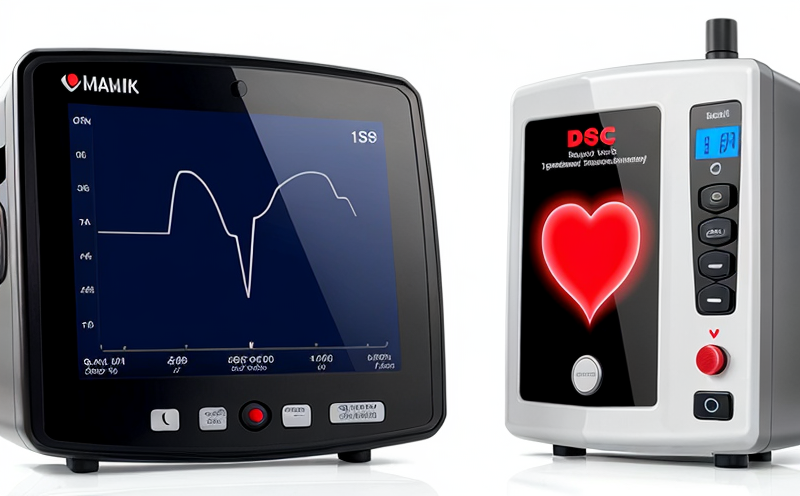ASTM F2394 Tensile Testing of Porous Metal Cardiovascular Implants
The ASTM F2394 standard specifies the procedure for tensile testing porous metal cardiovascular implants. This service is critical in evaluating the mechanical properties, particularly tensile strength and elongation at break, which are key indicators of a device's durability and biocompatibility under physiological conditions.
Porous metal materials used in cardiovascular devices, such as stents, grafts, and scaffolds, must withstand significant stress without failure. ASTM F2394 provides a standardized approach to ensure the integrity and reliability of these components. The testing method is designed to simulate the mechanical stresses experienced by implants during their service life, ensuring they meet regulatory requirements for safety and efficacy.
Before conducting the tensile test, specimens must be prepared according to ASTM F2394 guidelines. This involves selecting representative samples that accurately reflect the geometry and microstructure of the device. Specimens are then mounted in a tensile testing machine equipped with appropriate grips to prevent slippage during loading.
The testing apparatus typically consists of a computer-controlled load frame capable of applying controlled loads over time, ensuring accurate measurement of stress-strain behavior. The test involves gradually increasing the load until failure occurs, recording the force and displacement throughout the process. This data is used to calculate critical mechanical properties such as yield strength, ultimate tensile strength (UTS), and elongation at break.
The results from ASTM F2394 testing are essential for quality control, ensuring that each batch of cardiovascular implants meets stringent performance criteria. Compliance with this standard is crucial for manufacturers aiming to achieve regulatory approval and maintain market access in the highly regulated medical device sector.
| ASTM F2394 Industry Applications |
|---|
| Porous metal stents |
| Blood vessel grafts |
| Catheter-based implants |
| Scaffold materials for tissue engineering |
The ASTM F2394 tensile test is particularly important in the evaluation of porous metal cardiovascular devices. By providing a standardized method to assess mechanical integrity, this service supports the development and quality assurance processes in medical device manufacturing.
Scope and Methodology
The ASTM F2394 standard provides a detailed procedure for tensile testing porous metal cardiovascular implants. The scope encompasses the mechanical evaluation of these devices, focusing on their ability to withstand stress without failure. This service is crucial for ensuring that devices meet regulatory standards and perform reliably under physiological conditions.
- Preparation of specimens according to ASTM F2394 guidelines
- Use of appropriate tensile testing machines with controlled load frames
- Application of incremental loads until failure
- Recording of stress-strain data throughout the test
The methodology ensures that each test is conducted under consistent conditions, allowing for accurate comparison and reproducibility. This standardized approach is vital in maintaining quality control and ensuring compliance with regulatory requirements.
Industry Applications
| Porous Metal Cardiovascular Implants |
|---|
| Porous metal stents used in coronary artery disease treatment |
| Blood vessel grafts for bypass surgery |
| Catheter-based implants for percutaneous interventions |
| Scaffold materials for tissue engineering applications |
| Implants for peripheral vascular disease treatment |
| Bioresorbable stents that degrade over time |
The ASTM F2394 tensile test is widely used across the medical device industry to evaluate the mechanical properties of porous metal cardiovascular implants. This service supports various applications, from coronary artery disease treatment to tissue engineering, ensuring the reliability and safety of these devices.
Competitive Advantage and Market Impact
- Pioneering standardized testing methods for porous metal cardiovascular implants
- Enhancing quality assurance processes in medical device manufacturing
- Sustaining regulatory compliance and market access
- Supporting innovation through reliable test data
- Fostering trust among healthcare providers and patients
- Maintaining a competitive edge by ensuring consistent product performance
- Promoting the development of safer, more effective cardiovascular devices
The ASTM F2394 tensile testing service provides a significant advantage in the medical device market. By offering reliable test results and standardized procedures, this service helps manufacturers maintain regulatory compliance while enhancing product quality and safety. This ensures sustained market access and fosters innovation within the sector.





